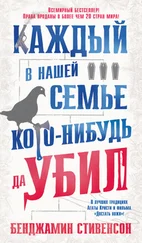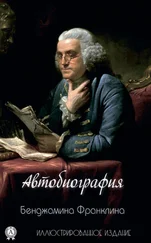But Daniel’s resentment of Simon masks something deeper, darker: he is just as angry with himself. For his failure to know Simon – truly know him – while Simon was alive. For his failure to understand Simon, even in death. Simon was his only brother, and Daniel had not protected him. Yes, they spoke after Simon’s arrival in San Francisco, and Daniel had tried to convince him to return to New York. But when Simon hung up, Daniel became so incensed that he threw the phone on the ground, where it cracked against the linoleum, and thought that perhaps Gertie’s life would be easier without Simon, anyway. Of course, that thought was as temporary as it was cruel, but could Daniel not have tried harder? Could he not have gotten the next Greyhound to San Francisco instead of stewing in his own resentment and waiting to be proven right?
They look at who’s vulnerable, Eddie said of the fortune teller. They can see straight through to the point.
It’s true, Daniel thinks, that Simon was vulnerable. He was seven years old, but that wasn’t the only reason. Just as there was something different about Klara, there was something different about him. Impossible to say whether he knew at that age he was gay, but he was elusive regardless, difficult to parse. He was not as verbal as his siblings. He had few friends in school. He loved to run, but he ran alone. Maybe the prophecy did plant inside him like a germ. Maybe it incited him to be rash – to live dangerously.
Daniel spits in the sink and reconsiders Eddie’s theory: that what innate vulnerability Klara had may have been triggered, or compounded, by her visit to the fortune teller. There are certainly situations in which the marriage of psychology and physiology are undeniable, if not fully understood – the fact that pain originates not in the muscles or nerves but in the brain, for instance. Or that patients whose outlooks are positive are more likely to beat disease. When he was a student, Daniel served as a research assistant for a study that explored the placebo effect. The study’s authors hypothesized that the effect was caused by patient expectations – and indeed, patients who were told the tablet of starch they’d consumed was a stimulant soon showed an increase in heart rate, blood pressure, and reaction time. A second patient group, told the placebo was a sleeping pill, fell asleep within an average of twenty minutes.
Of course, the placebo effect was not new to Daniel, but it was another thing when witnessed firsthand. He saw that a thought could move molecules in the body, that the body races to actualize the reality of the brain. By this logic, Eddie’s theory makes perfect sense: Klara and Simon believed they had taken pills with the power to change their lives, not knowing they had taken a placebo – not knowing that the consequences originated in their own minds.
A tall column in Daniel tips over. Sorrow floods out, as well as something else: an empathy for Simon, unbearably tender, that he has kept sealed for years. Daniel rests the heels of his hands on the marble countertop and leans forward until it passes. He needs to call Eddie.
Eddie’s business card is in the study. Ruby is inside with the door closed, but the light is on. When Daniel knocks, there’s no answer. He knocks a second time before cracking the door with concern.
‘Ruby?’
She’s sitting under the covers with a pair of oversized headphones over her ears and a book, Darkly Dreaming Dexter , in her lap. When she sees Daniel, she twitches.
‘Shit,’ she says, pulling the headphones off. ‘You scared me.’
‘I’m sorry,’ says Daniel, holding a hand up. ‘I was just hoping to grab something. I can come back in the morning.’
‘That’s okay.’ She turns the book over. ‘I’m not doing anything.’
During the day, she wore makeup – eyeliner and some sort of sparkly goop on her lips – but now she’s barefaced and looks younger. Her skin is a shade lighter than Raj’s, and though her eyes are dark like his, she has Klara’s full cheeks. Klara’s smile, too, of course. Daniel crosses to the desk, finds Eddie’s card in the top drawer, and slips it in his pocket. He’s about to leave when Ruby speaks again.
‘Do you have any pictures of my mom?’
Daniel’s heart compresses. He pauses, facing the wall. My mom . He’s never heard anyone refer to Klara this way before.
‘I do.’ When he turns, Ruby has pulled her knees to her chest. She’s wearing the SpongeBob SquarePants pajama bottoms and a baggy sweatshirt, hair elastics stacked on her wrist like bracelets. ‘Would you like to see them?’
‘We have some, too,’ she says, quickly. ‘At home. But they’re all the same ones I’ve seen a million times. So yeah. I would.’
He walks to the living room to dig out the old albums. How strange it is, to have Ruby here. His niece. Daniel and Mira, of course, are not parents. When he asked Mira to marry him, she told him about her endometriosis – stage four. ‘I can’t have children,’ she said.
‘That’s okay,’ said Daniel. ‘There are other options. Adoption –’
But Mira explained that she didn’t want to adopt. She was diagnosed, unusually, at seventeen, so she’d had years to consider it. She would find other satisfaction in life, she’d decided; she didn’t need to be a parent. Daniel found he couldn’t say goodbye to her. Privately, though, he mourned. He had always imagined himself as a parent. When he watched a sleeping child being carried out of the restaurant by her father, her head limp against his neck, Daniel thought of his own siblings. But fatherhood frightened him, too. He had only Saul – rigid, distant – for comparison. It was impossible to know how he’d fare. Back then, he thought he would do better than Saul, but perhaps that was a fallacy. It was equally possible that he would do worse.
He returns to the office with two photo albums. Ruby is sitting cross-legged on the bed now, her back against the wall. She pats the empty space beside her, and Daniel climbs up. He isn’t flexible enough to cross his legs, so they dangle off the edge of the futon as he opens the first album.
‘I haven’t looked at these in years,’ he says. He thought it would be painful, but what grips him, when he sees the first photo – all four of the Gold children on the steps of 72 Clinton Street, Varya a leggy adolescent, Simon a towheaded toddler – is joy. The way it floods him, warm: he could cry.
‘That’s Mom.’ Ruby points at Klara. She’s four or five, in a green plaid party dress.
‘It sure is.’ Daniel laughs. ‘She loved that dress; she’d scream when your grandmother washed it. She pretended to be Clara from the Nutcracker whenever she wore it. And we were Jewish! It drove my father nuts.’
Ruby smiled. ‘She was strong willed, wasn’t she?’
‘Very.’
‘I am, too. I think it’s one of my best qualities,’ Ruby says. Daniel is amused, but when he looks at her, he sees she’s serious. ‘Otherwise, people will push you around. Especially if you’re a woman. Especially if you’re in the entertainment business. Dad taught me that. But I think Mom would’ve agreed.’
Daniel is sobered – has Ruby been pushed around? How? – but she turns the page to reveal photos from the same day of the siblings in pairs.
‘That’s Aunt Varya and Uncle Simon. He died before I was born, of AIDS.’ She looks to Daniel for confirmation.
‘That’s right. He was very young. Much too young.’
Ruby nods. ‘There’s going to be a pill for that soon – Truvada. Did you know? It doesn’t cure HIV, but it prevents you from getting it. I read an article about it in the New York Times . I wish it’d been around back then. For Uncle Simon.’
Читать дальше
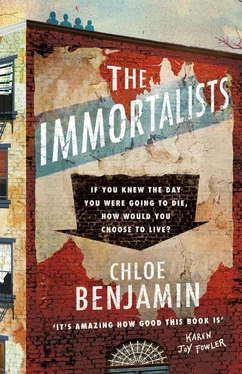

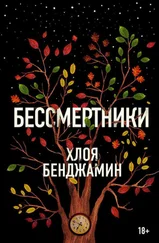

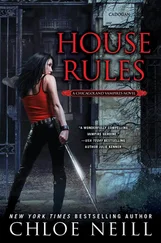



![Мелани Бенджамин - Госпожа отеля «Ритц» [litres]](/books/384861/melani-bendzhamin-gospozha-otelya-ritc-litres-thumb.webp)

